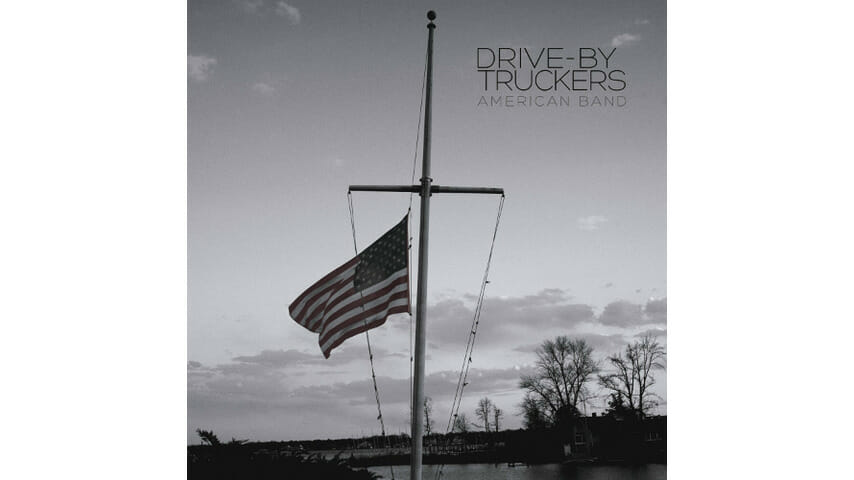Many of the YouTube commenters on the Drive-By Truckers’ lyric video for “What It Means” seem offended by the overt politics of the song, which comes from the group’s new album. With references to Trayvon Martin, Michael Brown and other young black men killed largely because they were young black men, the tune is unreservedly sympathetic to the Black Lives Matter movement—uncomfortably so, it seems, for some listeners, who accuse the band of “white guilt,” “selling out” and, that most grievous of liberal pantywaist sins, political correctness.
Yet the Drive-By Truckers have always had a political streak, and it has never tilted rightward. As far back as Pizza Deliverance in 1999, singer Patterson Hood was mocking the impeachment proceedings against Bill Clinton on “The President’s Penis Is Missing.” Their 2001 release Southern Rock Opera was a double-album-length examination of Southern attitudes toward race, politics and Lynyrd Skynyrd, while plenty of songs on subsequent releases have invariably poked at authority figures or taken the side of the have-nots who are all too aware that equality and justice are luxuries that many people can’t afford. It is true, though, that American Band is the timeliest of the Truckers’ social critiques, coming just six weeks before the presidential election.
“I wanted this to be a no-bones-about-it, in-your-face political album,” singer and guitarist Mike Cooley says in press notes for the album. “I wanted to piss off the assholes.”
There’s plenty of bait in these 11 songs, which are by turns pointed and sorrowful. With acoustic guitar accompanied by pedal steel and Hood’s plaintive vocals, “What It Means” takes a subdued approach to the subject of African-Americans killed at the hands of police (or, in the case of Martin, a vigilante cop-wannabe). “Darkened Flags on the Cusp of Dawn” is the brawny flipside, full of the growling, intertwined guitars that have become something of a Truckers signature over the years. Hood mostly handles the downhearted tunes, singing from the perspective of a military veteran wounded as a civilian by an act of domestic terrorism on the moody “Guns of Umpqua,” sighing in the gloom over a gentle piano phrase on “When the Sun Don’t Shine” and parsing his own struggles with depression on “Baggage,” written after Robin Williams committed suicide.
Cooley contributes the harder-edged numbers on American Band, starting with opener “Ramon Casiano.” Over burly guitars, Cooley recounts the true, and largely overlooked, story of a confrontation between two teenagers in Texas that ended with one shooting and killing the other. The shooter was Harlon Carter, who later worked for the U.S. Border Patrol and, as president of the National Rifle Association 1977-85, transformed the NRA from a sporting organization to an absolutist gun-rights group. “He had the makings of a leader/ Of a certain kind of man/ Who need to feel the world’s against them,” Cooley sings in his laconic drawl, before noting that the kind of man he’s talking about tends to be “united in a revolution/ With like in mind and like in skin.” He’s just as acerbic on “Kinky Hypocrite,” a roadhouse rocker that skewers “low-hanging, headline-grabbing ring masters” keen on separating fools from their money.
In other words, American Band is not a bashful album, and how you feel about its barbed perspective likely depends on your political orientation. As a political statement, it’s easily the Truckers’ most emphatic work. As a collection of songs, it’s probably less effective than Southern Rock Opera or The Dirty South, albums that made subtler, if similar, points in more thematic and universal ways. The songs on American Band, for the most part, are well constructed, catchy-enough tunes that don’t quite rise into the first rank of the group’s deep and impressive catalog. That said, the more surreal this election cycle becomes—and especially after the stupefying spectacle of this week’s presidential debate—they’re starting to feel increasingly essential.
